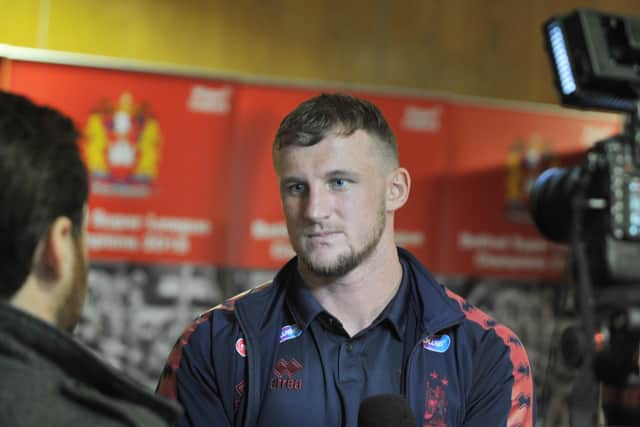Inside Rugby League: Game has become too fast and too physical and must focus on quality not quantity – Peter Smith


Manfredi damaged his left knee in training last week, having previously undergone three reconstructions in five seasons following anterior cruciate ligament injuries.
Two of those were to his left knee and he admitted to being in “constant pain” which is affecting his quality of life.
Advertisement
Hide AdAdvertisement
Hide AdLast September, Leeds Rhinos forward Dom Crosby confirmed he was hanging up his boots, aged 29, after two years on the sidelines because of ankle and knee injuries.


A few months later, former Rhinos captain Stevie Ward retired, at the age of 27, after failing to recover from a concussion which kept him out of the entire 2020 season.
Wakefield Trinity’s win over Wigan Warriors five days ago was marred by a knee injury to winger Tom Johnstone, who has endured two reconstructions in the past and was just a couple of games into his comeback from a serious concussion.
His centre, Bill Tupou, will miss the rest of this season because of a knee injury and in the recent Challenge Cup semi-final against St Helens, Hull conceded a try after their centre Josh Griffin’s Achilles tendon snapped.
Advertisement
Hide AdAdvertisement
Hide AdA day after Manfredi’s impending retirement was announced, Wigan confirmed their star full-back Bevan French, a Man of Steel nominee last year, is also out for the season, with a damaged hamstring.


Rugby league has made national headlines since Rhinos legend Rob Burrow’s motor neurone disease diagnosis was revealed in December, 2019 and, while a link with his rugby career has not been confirmed, there is widespread concern in the game about the impact of head injuries on players’ long-term health.
The toll rugby league can take on a player’s body is grim and Manfredi’s news broke at a time when Super League clubs are being asked to play four games in two weeks, or less.
Rugby league, as a sport, has changed over the years.
While it could be argued some of the skill and unpredictability has gone out of the game, there is no doubt – particularly at the top level where the players are full-time – it is now faster than ever and the collisions are bigger.
Advertisement
Hide AdAdvertisement
Hide AdThese days, even the little players are big and the impacts are brutal.
Injuries can happen at any time and all levels of the sport, but increasing how often players are expected to put their bodies on the line – and limiting the opportunity to rest and recover – adds to the stress and strain they go through, mentally as well as physically.
The sort of fixture schedule teams are currently facing isn’t particularly unusual and 30 or 40 years ago, it would not have seemed extreme.
In 1986, Leeds played 14 games in 43 days between March 16 and April 27, including on April 3, 6, 9, 11, 13 and 15 – which is six in 13.
Advertisement
Hide AdAdvertisement
Hide AdThe day after Leeds drew 24-24 with Hull KR in a classic Challenge Cup semi-final at the end of March, they were in league action at home against Hull KR.
Those players weren’t full-time athletes and it wasn’t a 17-man game, but the emphasis on weight training over more recent years has made the game more physically challenging, at a time when there is a constant emphasis on speeding it up.
The Covid-induced – and possibly temporary – abolition of scrums and new six-again law mean the ball is in play longer and there’s less time for recovery during matches, as well as afterwards.
Player welfare isn’t the only issue.
The quality of rugby suffers when players are asked to do too much and it’s a fair bet there will be some poor games coming up over the next few weeks.
Advertisement
Hide AdAdvertisement
Hide AdWhile clubs need to maximise their income, fans won’t pay to attend if they aren’t getting value for money.
The sport has now reached a stage where it is actually too fast and too physical, as the mounting injury toll illustrates. Surely it is time to take a step back and put more emphasis on quality, rather than quantity. That would be better for the players, the fans and the game as a whole.
Support the YEP and become a subscriber today. Enjoy unlimited access to local news and the latest on Leeds United, With a digital subscription, you see fewer ads, enjoy faster load times, and get access to exclusive newsletters and content. Click HERE to subscribe.
Comment Guidelines
National World encourages reader discussion on our stories. User feedback, insights and back-and-forth exchanges add a rich layer of context to reporting. Please review our Community Guidelines before commenting.